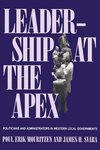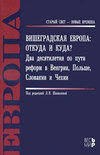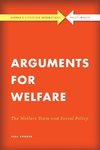
-
 Anglický jazyk
Anglický jazyk
1990s in LGBT history
Autor: Source: Wikipedia
Source: Wikipedia. Pages: 50. Chapters: Don't ask, don't tell, Matthew Shepard, Brandon Teena, Defense of Marriage Act, Romer v. Evans, List of American television episodes with LGBT themes, 1990-1997, Murder of Gary Matson and Winfield Mowder, Egan v. Canada,... Viac o knihe
Na objednávku, dodanie 2-4 týždne
17.10 €
bežná cena: 19.00 €
O knihe
Source: Wikipedia. Pages: 50. Chapters: Don't ask, don't tell, Matthew Shepard, Brandon Teena, Defense of Marriage Act, Romer v. Evans, List of American television episodes with LGBT themes, 1990-1997, Murder of Gary Matson and Winfield Mowder, Egan v. Canada, The Puppy Episode, Toonen v. Australia, Alaska Ballot Measure 2, Allen R. Schindler, Jr., In re Guardianship of Kowalski, Vriend v. Alberta, Hurley v. Irish-American Gay, Lesbian, and Bisexual Group of Boston, 1995 in LGBT rights, 1994 in LGBT rights, Common Lives/Lesbian Lives, Oregon Ballot Measure 9, Kentucky v. Wasson, M. v. H., Executive Order 13087, Bolton 7, 1999 in LGBT rights, 1998 in LGBT rights, Sutherland v United Kingdom, 1996 in LGBT rights, 1993 in LGBT rights, Project SCUM, 1997 in LGBT rights, R v Brown, R. v. Glad Day Bookshops Inc., Canada v. Mossop, Case No. 111-97-TC, Laskey, Jaggard and Brown v United Kingdom, 1992 in LGBT rights, Hawaii Constitutional Amendment 2, 1990 in LGBT rights, Modinos v. Cyprus, 1991 in LGBT rights, Hamilton Square Baptist Church protests. Excerpt: Don't ask, don't tell (DADT) is the term commonly used for the policy restricting United States military personnel from efforts to discriminate or harass closeted homosexual or bisexual service members or applicants, while barring those who are openly gay, lesbian, or bisexual from military service. The restrictions are mandated by federal law Pub.L. 103-160 (10 U.S.C. § 654). The policy prohibits people who "demonstrate a propensity or intent to engage in homosexual acts" from serving in the armed forces of the United States, because their presence "would create an unacceptable risk to the high standards of morale, good order and discipline, and unit cohesion that are the essence of military capability." () The act prohibits any homosexual or bisexual person from disclosing his or her sexual orientation or from speaking about any homosexual relationships, including marriages or other familial attributes, while serving in the United States armed forces. The act specifies that service members who disclose that they are homosexual or engage in homosexual conduct shall be separated (discharged) except when a service member's conduct was "for the purpose of avoiding or terminating military service" or when it "would not be in the best interest of the armed forces" (10 U.S.C. § 654(e)). As it exists, DADT specifies that the "don't ask" part of the policy indicates that superiors should not initiate investigation of a servicemember's orientation in the absence of disallowed behaviors, though credible and articulable evidence of homosexual behavior may cause an investigation. Violations of this aspect through unauthorized investigations and harassment of suspected servicemen and women resulted in the policy's current formulation as "don't ask, don't tell, don't pursue, don't harass." A bill to repeal DADT was passed in 2010. However, the policy remains in place until the President, the Secretary of Defense, and the Chairman of the Joint Chiefs of Staff certify that repeal
- Vydavateľstvo: Books LLC, Reference Series
- Rok vydania: 2021
- Formát: Paperback
- Rozmer: 246 x 189 mm
- Jazyk: Anglický jazyk
- ISBN: 9781150966712





 Nemecký jazyk
Nemecký jazyk 
 Ruský jazyk
Ruský jazyk 




